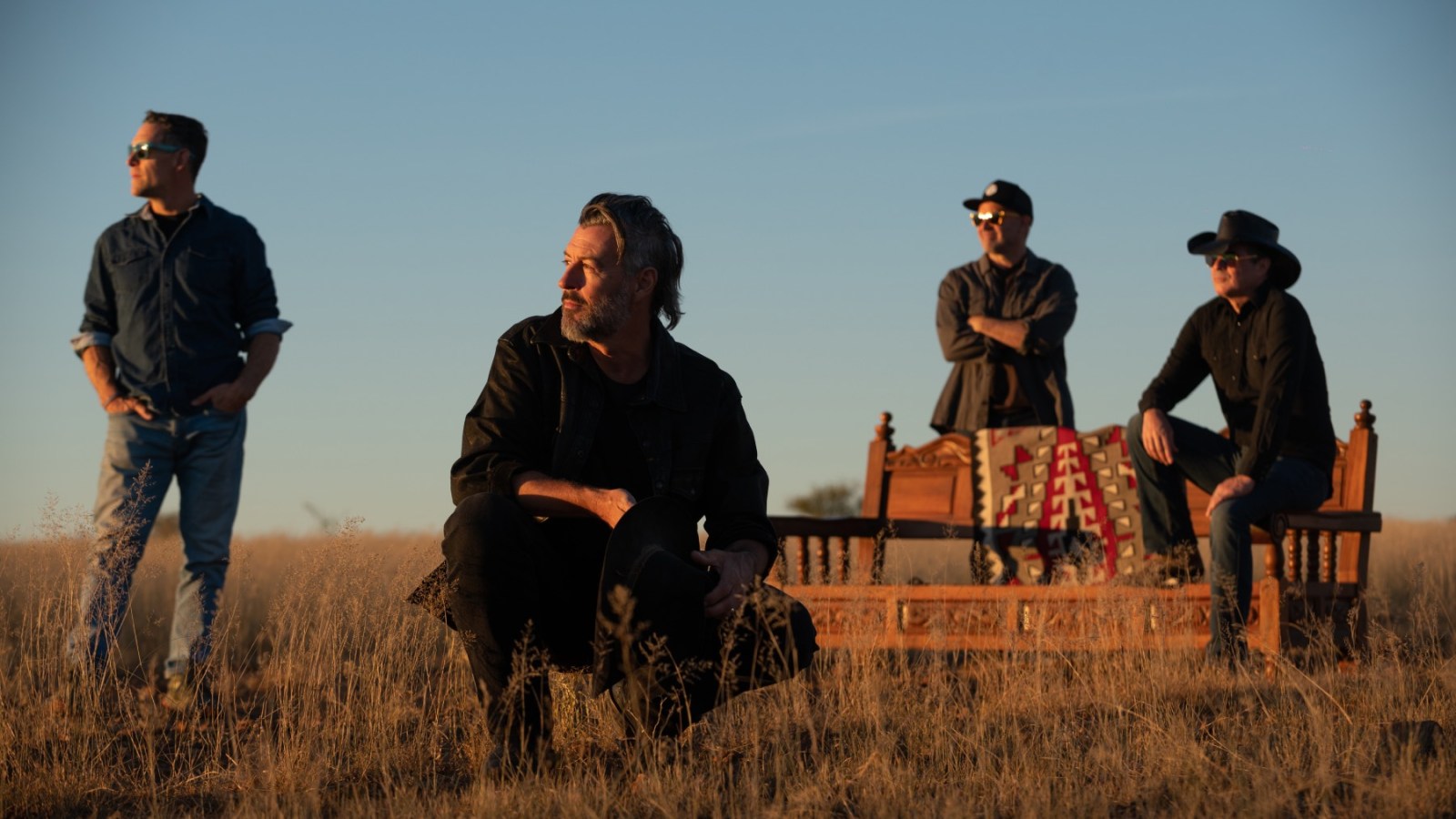For four days each June, all eyes in the resort town of Puerto Peñasco, Mexico, are on Roger Clyne.
He’s the leader of Roger Clyne and the Peacemakers, and he’s also the founder and primary curator of Circus Mexicus — a beachfront music festival, heavy on independent rock and country that plays out in and around Puerto Peñasco (Rocky Point in English), a four-hour drive across the desert from either Phoenix or Tucson and situated on the Gulf of California.
By night, Clyne is the headliner and main draw at Circus Mexicus. By day, he makes his way around town, from bar to bar, shaking hands with fans and buying rounds of tequila shots and margaritas for anyone who looks interested. For Clyne, a lifelong Arizonan whose family ranch is 30 miles south of Tucson in the Sonoran desert, tequila shots and margaritas come second-nature. His only challenge in making these rounds is pacing himself.
“I am Santa Claus on Christmas here,” Clyne says of hosting Circus Mexicus. “I am super busy. The trickiest part is serving all those amazing fans, customers and tourists — and those bars, and making it home alive and getting a good nap before still putting on the best show that I can put on.”
Circus Mexicus is in its 26th year. Counting pre-parties and afterparties before and after the main festival, next month’s incarnation will take place from June 5 through 9. The four-piece Peacemakers, known for “Heaven on a Paper Plate,” “Green & Dumb,” “Switchblade,” and a host of songs from Clyne’s prior band — The Refreshments — headline two nights. Others on the bill include Micky and the Motorcars, John Cannon of Low Down Drifters, Willy Braun of Reckless Kelly, and Shelby Stone.
Festival organizers, Clyne included, are aware of the current U.S. political climate, especially policies surrounding border crossings. Clyne says his experience at the primary crossing for fans driving to Puerto Peñasco — in Lukeville, Arizona — so far this year has been similar to previous years and does not expect major delays or incidents for traveling fans.
Clyne, 57, has been writing, recording and performing for nearly four decades. He fell into a vibrant college rock scene in Tempe in the late Eighties. In the span of a decade, the college bars in the Phoenix suburb gave rise to alternative bands such as Gin Blossoms, Pistoleros, and the Refreshments. Even casual fans of 1990s rock have likely heard “Banditos,” The Refreshments’ 1996 breakout hit about robbing a bank in a border town — which Clyne still plays today. The Refreshments also recorded the catchy instrumental theme music for King of the Hill. But the band members were young and volatile, and in 1998, the group split after six years.
After the breakup, Clyne and P.H. Naffah — Refreshments drummer and co-founder — regrouped and formed the Peacemakers in 1999. Around most of the U.S., the Peacemakers are a club band, but in Arizona, they are bona fide superstars, headlining major venues and festivals and earning a 2019 induction into the Arizona Music & Entertainment Hall of Fame. “Peacemakers” has a double meaning, too, as it is the name Clyne has given to the band’s fiercely loyal fan base. Today, the band is Clyne and Naffah plus bassist Nick Scropos and lead guitarist Jim Dalton — who also fronts the Denver-based country band the Railbenders. Their 11 studio albums, all independently released, still evoke Clyne’s alt-rock roots, but they are far more aligned, musically, with Americana.
All of this is on display at Circus Mexicus, which began in the wake of the Refreshments’ breakup.
“The Refreshments put out a record, and was me singing about what I know,” Clyne recalls. “Mexico is in there as a place. Characters from Mexico are in there as people. Then, 1999 happens. The Refreshments — as has been well-documented — have broken up. The Peacemakers are just starting to do stuff, and I said, ‘Let’s fucking go to Mexico,’ because we couldn’t do it with the Refreshments. The record label, management and distribution, they all couldn’t make money down there. But I said, let’s walk the walk and go down there and do something.
“It wasn’t even a festival, it was a show. I drove the band’s van down there looking for a stage, and nobody had one. But, at Sunset Cantina, there was a young man named Chad, and he goes, ‘I don’t have a stage, but I got a roof. I can put pallets up there and run an extension cord.’ High-five! Let’s do it! That was October 1999. That’s where this whole journey began.”
Over time, Circus Mexicus evolved, eventually ballooning into a four-day festival drawing upwards of 5,000 fans to its beachfront main stage and a series of side stages at bars, cantinas, and restaurants stretching from Puerto Peñasco to La Choya. Clyne says this is the natural result of a fan base that returned year-over-year.
“We used to go one night, and play for four hours and pass out,” Clyne tells Rolling Stone. “Try to be the last people standing. If the band was the last one standing, and everybody else was laying down, and it was 2 in the morning, that was something! But, things kind of changed, and our crowd got older, and had different needs, so we tried to adapt to those. Let’s start at 9 instead of 11. Let’s bring our friends — our musical community — down here. Let people day-drink and go see music at all of our cantinas.”
He says “our” intentionally. Clyne has an affinity for Puerto Peñasco and Mexico as a whole. Growing up on his family’s ranch — still run by his father, Doc Clyne, and site of the intimate Clyne Country Campout festival in mid-autumn — he was exposed to Mexican culture through the hired ranch hands from south of the border. His first shot of tequila — “I got to knock it back with them,” were his words — came at around age 11 or 12, when he saw some hands from Mexico drinking it out of an unmarked bottle.
“We got a lot of help from the locals,” Clyne says. “And by ‘locals,’ I also include Mexican people. The border wasn’t a big ballyhoo then. You could cross the border with no big deal. We did it all the time.
“It was always really cooperative. My relationship goes way back, and I have a deep respect because of how I remember that. Now, of course, politics gets involved, and the border gets less porous, and people get vilified on both sides. That all happened independently of my experience. I just tried to ignore it.”
He will ignore it again next month in Puerto Peñasco, when he pre-games his own festival by trying to look as cool to his fans as the cowboys with the tequila looked to him. He’s pretty confident he’ll find takers once again for the shots.
“All I am doing is putting money in the cantinas’ pockets,” Clyne says.
Josh Crutchmer is a journalist and author whose fourth book, Never Say Never: Cross Canadian Ragweed, Boys From Oklahoma, and a Red Dirt Comeback Story for the Ages, was released in April via Back Lounge Publishing.



